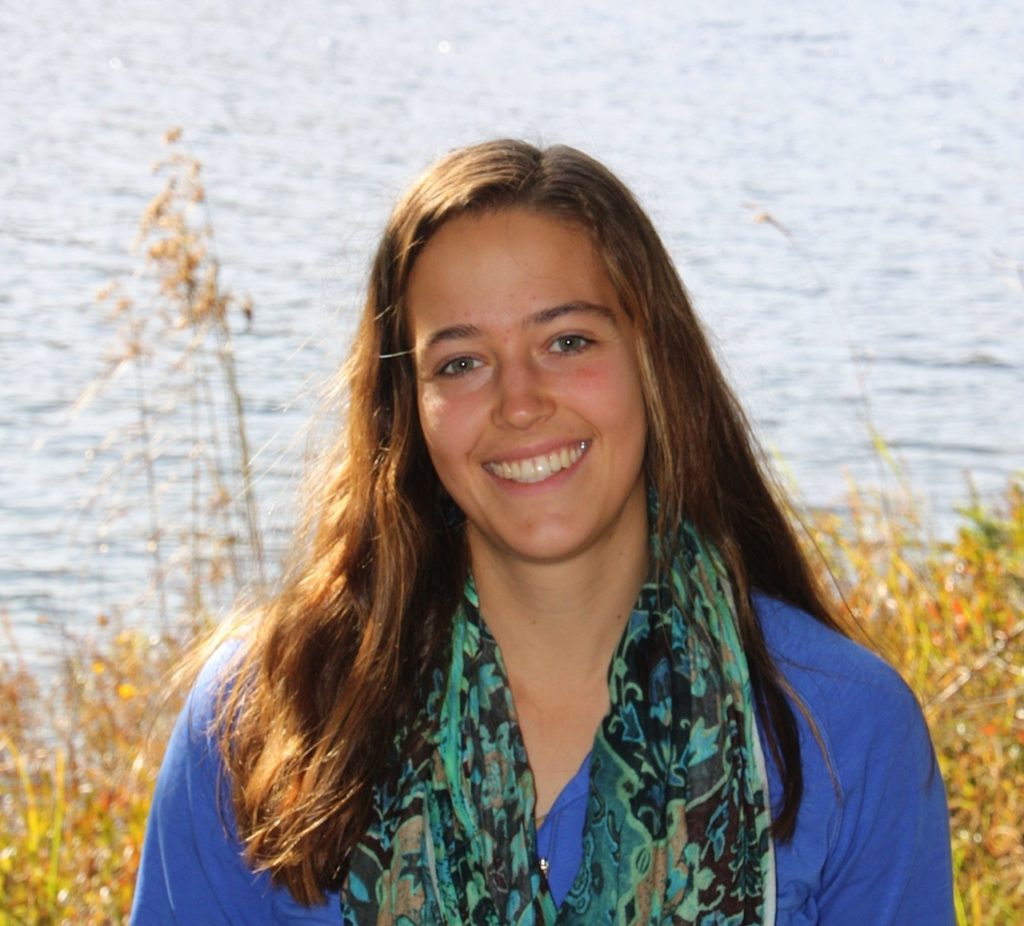September 29, 2021
Welcome our 2021-2022 Congressional Science Fellow Sarah Alexander
Posted by Caitlin Bergstrom
 The American Geophysical Union (AGU) is pleased to announce its newest Congressional Science Fellow, Dr. Sarah Alexander. Now in its 44th year, AGU’s Congressional Science Fellow program places highly qualified and accomplished scientists, engineers, and other professionals in the office of an individual member of Congress or on a committee for a one-year assignment. Dr. Alexander, who started her fellowship in September, has been placed within the office of Sen. Tina Smith (MN).
The American Geophysical Union (AGU) is pleased to announce its newest Congressional Science Fellow, Dr. Sarah Alexander. Now in its 44th year, AGU’s Congressional Science Fellow program places highly qualified and accomplished scientists, engineers, and other professionals in the office of an individual member of Congress or on a committee for a one-year assignment. Dr. Alexander, who started her fellowship in September, has been placed within the office of Sen. Tina Smith (MN).
Sarah Alexander is no stranger to solutions-focused work. From a young age, she has thrived working in teams, serving as an outdoor educator during summers in Minnesota, honing her wilderness skills to help lead groups of campers and peers to safety in precarious situations. “Wilderness adventure requires flexibility and creative solutions.” Sarah carried that creativity to her PhD research in Civil and Environmental Engineering at the University of Wisconsin- Madison, where she sought to create strategies for vulnerable communities to deal with climate change. She developed local precipitation prediction model to optimize water resource allocations for farmers in a drought-vulnerable region in Ethiopia. Her research also focused on the best ways to communicate with local communities. Her team created a digital bulletin with a social scientist to deliver these rainfall predictions to farmers. She also used her minor in Life Sciences Communication to understand community-level needs in the U.S. and foster support for climate adaptation and policy action.
Sarah still had one big question she wanted answered: how do we get climate researched used in decision making? So, at AGU’s Fall Meeting in 2018 in Washington, DC, she decided to spend some time attending AGU Science Policy’s workshops and events. At the conference, she saw a way to use science in a different context that helped to complement her scientific training. From here, she applied to AAAS’s Catalyzing Advocacy in Science and Engineering (CASE) workshop, which offers a 2-day training to grad students to learn how to best engage with policymakers, culminating with meetings with their members of Congress on Capitol Hill. Sarah took this energy with her back to Madison, joining her campus’s science policy group, eventually serving as their policy engagement chair. She worked on science memos for members of the state legislature and took more ownership of her science policy skills. This led her to applying to the Congressional Science Fellowship while she was finishing up her dissertation.
Sarah is placed in the office of Senator Tina Smith of Minnesota, her home state. She was looking to work somewhere in the environmental, climate, and natural resources space, and Senator Smith’s office was a great fit. “I hope to think strategically in the climate space, especially managing natural resources like water and agriculture,” she told me. And Capitol Hill is busy already. Sarah is excited to work on clean energy standards and the reconciliation package moving through Congress. She is also looking forward to helping her fellow Minnesotans work on climate resilience and adaptation (and being able to run more comfortably outside in the winter).
Sarah’s advice to anyone looking to get started in science policy is to think big- and small. “There are so many ways to get involved. If you’re at a society meeting, try and go to as many science policy events as possible. Join a science policy group at your university or get involved with the National Science Policy Network if there isn’t one.” Sarah is happy her path led her to this fellowship and is excited to betting to know the policymaking process better and have an insider experience on all things policy. We can’t wait to work with Sarah and her fellow Congressional Science Fellows in the upcoming year!
Apply for the 2020-2021 Congressional Science Fellowship
To learn more about applying for an AGU Congressional Science Fellowship, visit the AGU Science Policy website. Applications for the 2020-2021 term will be open 15 October 2019 – 15 January 2020.


How wonderful to see a familiar face in the AGU Science Policy newsletter! Congratulations Dr. Alexander!